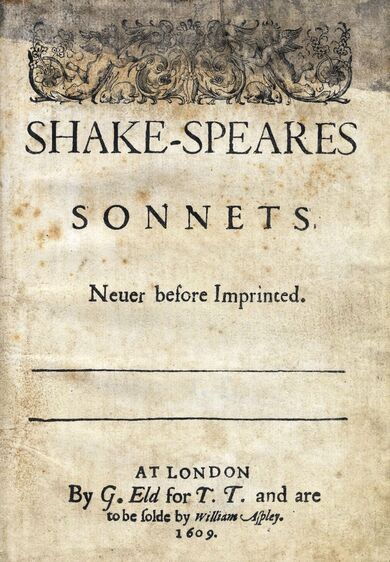Sonnet XXXV: No more be grieved at that which thou hast done
by Sophia Brookshire
William Shakespeare's Sonnets 35 is one of the estrangement sonnets. The narrator's resolve is weakening towards his beloved; he is even beginning to make excuses for his beloved's actions. Shakespeare uses an extended law metaphor: the narrator acts as both the prosecutor and the defender of the beloved's "sensual" crimes. The narrator addresses his beloved directly in this poem.
The narrator states that he is no longer going to lament over what his beloved did to him; it isn't clear what exactly the crime is, but the narrator alludes to the beloved having a "sensual fault." He goes on to list all of the beautiful things that have imperfections: roses have thorns, silver fountains have mud, clouds and eclipses obscure the brightness of the moon and sun, and "cankers" (rose worms) are found in even the most beautiful buds. Nothing and no one is perfect. This first stanza can be viewed as the narrator acting as the defender's opening statement in court.
In the second stanza, the narrator makes his argument more personal by stating that even he has faults. Both "authorizing" and "trespass" are legal terms; authorize is defined as giving legal power to do something, and trespass is defined as an unlawful entry on someone else's land. The narrator is saying that by giving his beloved the power to trespass (or sin) by comparing his beloved's faults to his own (i.e. justifying his actions) he is allowing himself to be corrupted; if the narrator is corrupted then he is no better than his beloved, and just as guilty. The phrase: "salving thy amiss" means that the narrator is palliating (to cover by excuses and apologies) his beloved's offense.
The narrator is acting like both the prosecution and the defender in this stanza. As a prosecutor, the narrator brings reason to his beloved's sensual fault (i.e. character flaw). As the defender or rather the "unfavorable party," the narrator acts as his beloved's advocate. The narrator is arguing himself: on one side he has reason, but on the other "unfavorable" side he is defending his beloved's actions. The narrator is having an internal "civil war;" the narrator's "love and hate" make up the opposing sides. "Love and hate" are the two of the greatest emotions that humans can feel, and it is often said that they go hand-in-hand; love can turn into hate in an instant under the right conditions and vice-versa. Which do you think will win the war: love or hate?
In the final rhyming couplet, the narrator states that he is an accessory (to his beloved's crime, unlawful). He is also an accessory to his own pain and anger, because he allows his beloved to hurt him thusly. "That sweet thief" (i.e. his beloved) robs the narrator of love, happiness, and so on, but the narrator allows him to do so. Given this statement, who is really the one at fault here: the beloved or the narrator? It appears that love has won this particular war.



